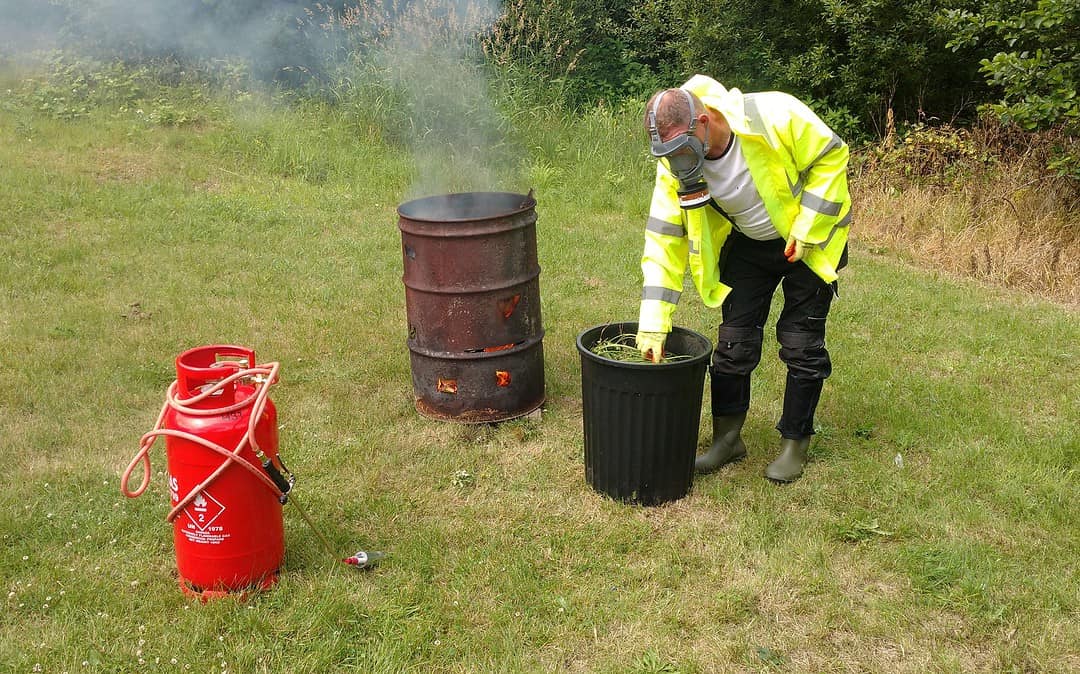Understand What happens if you burn knotweed? the dangers of burning Japanese knotweed, an invasive plant species.
Burning can release harmful chemicals into the air. It is not an effective method of controlling the spread of the plant. Discover the proper disposal methods and why it’s important to use trained professionals to deal with the problem.
Burning Japanese knotweed can release harmful chemicals into the air.
More so when the plant is in the flowering or seed-bearing stage. These chemicals can cause harm to human health, and should be avoided. Additionally, burning Japanese knotweed can also be ineffective in controlling the spread of the plant. The underground rhizomes can survive and regrow from the roots.
It’s also important to note that, burning of any plant material can be dangerous and could lead to a wildfire if not done properly, and also it could be illegal depending on the location and jurisdiction.
The proper way to control Japanese knotweed is to dig up the entire root system and transport it to a regulated landfill. Another solution would be to chemical treatment the Japanese knotweed. This should be done by trained professionals, as it requires specialized equipment and knowledge of the plant’s growth habits.
When burning Japanese knotweed in the open, several chemicals can be released including:
- Carbon monoxide
- Volatile Organic Compounds (VOCs)
- Nitrogen oxides
- Particulate matter
It is important to note that burning any organic material releases potentially harmful chemicals into the air. It should be carried out buy a specialist contractor with caution and proper PPE .
